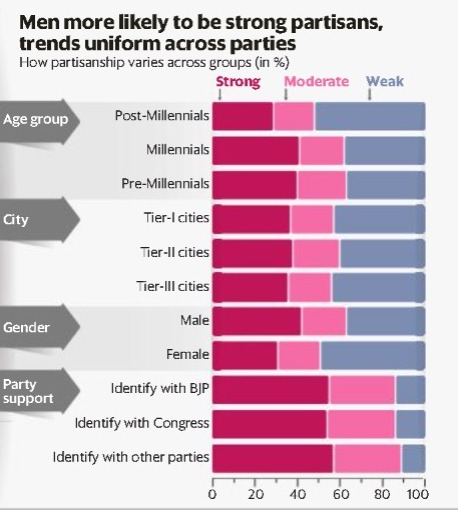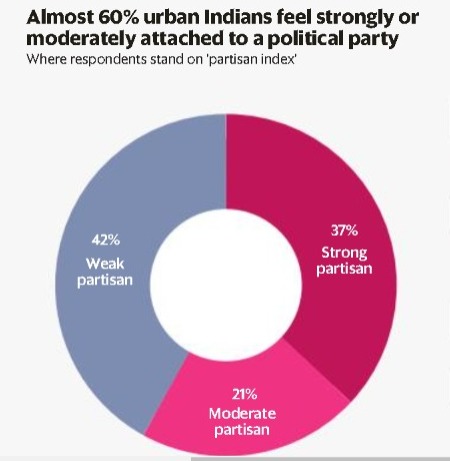The diplomats and scholars have been worrying about the erosion of democratic values in our country for a couple years now. The basic pillars upon which democracy rests such as press freedom, federalism, independence of election commission, and secularism are under threat, which alarms concern.
The ruling party at the centre comes under the flames for creating such an atmosphere in India. BJP, after all, is hardly recognized as the party for minorities but prides itself in being saffron-clad, representing Hindutva.
The other political parties are not irreproachable either as their propaganda also relies on pleasing voters based on religious or caste propaganda. The rule-and-divide politics did not end with the departure of the British, but it became the political tool of today’s political parties.
However, contrary to our beliefs, it is common people who are driving the erosion of democratic values in India. Yup, common people like you and me.
India Becoming Less Democratic Because Of Us
The survey conducted jointly by the research firm YouGov, Mint, and the Delhi-based Centre for Policy Research (CPR) covering 12,900 respondents across 206 cities shows that the Urban Indian population is increasingly drawn towards authoritarian tendencies.
Moreover, it is surprisingly the educated and millennial population that is showing this trend the most among all age groups. The post-millennial population (GenZ) has the least percentage of people who show partisan qualities (being strongly affiliated to a political party, one-sided).
58% of the Urban population comprising of educated, rich, and older population has low regard for democratic values and prefer authoritarian tendencies. The trend is synonymous with the privilege that this group enjoys, as it is the marginalized and poorer sections of society that suffer at the hands of authoritarianism.
Read More: The Indian Democracy Won’t Collapse, Here’s Why
More Findings
Men are stronger partisans compared to women. Approximately 42% of males show strong affiliation towards their preferred political party as opposed to just 31% for women. This is again synonymous with the privilege that a man enjoys.
The trend is similar across supporters of various political parties, thus it is not true that one particular party is responsible for creating such an atmosphere in the country.
Those who say that BJP is leading to decline in democracy may be surprised that the support for a strong military leader is slightly weaker in BJP supporters than other party supporters.
49% of people admitted that when someone insults their preferred political party, it feels like a personal insult to them. The ability to take criticism is one of the virtues of democracy that empowers citizens. But if citizens themselves discourage it, then what good is democracy?
74% of people admitted that they feel good when someone praises their preferred party.
Cause Of Concern
It is alarming that 51% of the respondents don’t mind if the process of elections is done away with and a strong authoritarian rule is imposed. The majority of the people would prefer military rule.
High Partisan values mean that people would vote for the political party even at the cost of democratic values. High partisanship makes society polarized, leaving it vulnerable to conflicts that harm communal peace.
A silver lining is that the survey only included the urban population, so the rural population which constitutes the majority population may think differently.
Given that people are the true rulers in a democracy, their standpoint matters a lot when it comes to upholding democratic values. Urban India is crucial to the country’s politics and their strong tendencies towards authoritarianism is a cause of concern and a huge one at that.
Disclaimer: The article is fact-checked
Sources: LiveMint (Digital Paper), The Atlantic
Image Sources: LiveMint Digital Paper, Google Images
Find The Blogger: @TinaGarg18
This post is tagged under: democracy, India, secularism, political party, democratic values, authoritarianism, political affiliation, urban india, rich people, educated society, eroding democracy, india less democratic, dictatorship, military rule, death of democracy, urban population, privilege


































